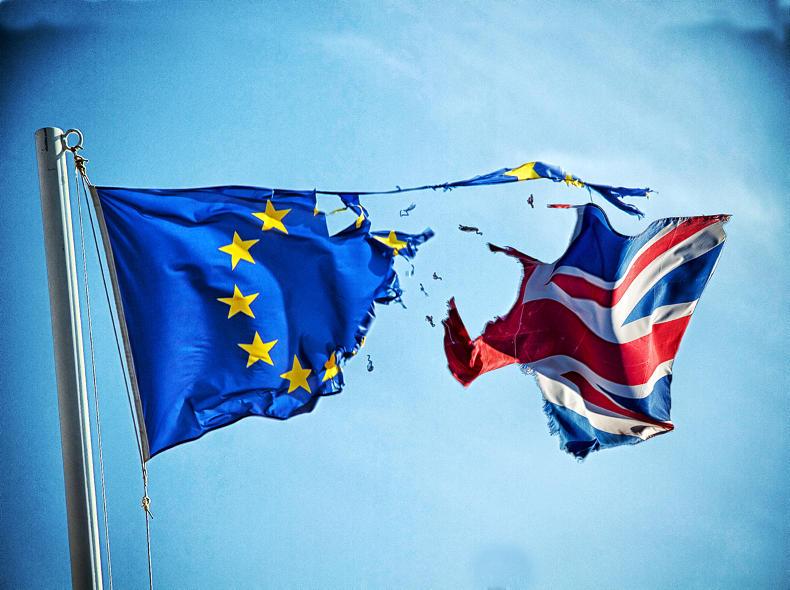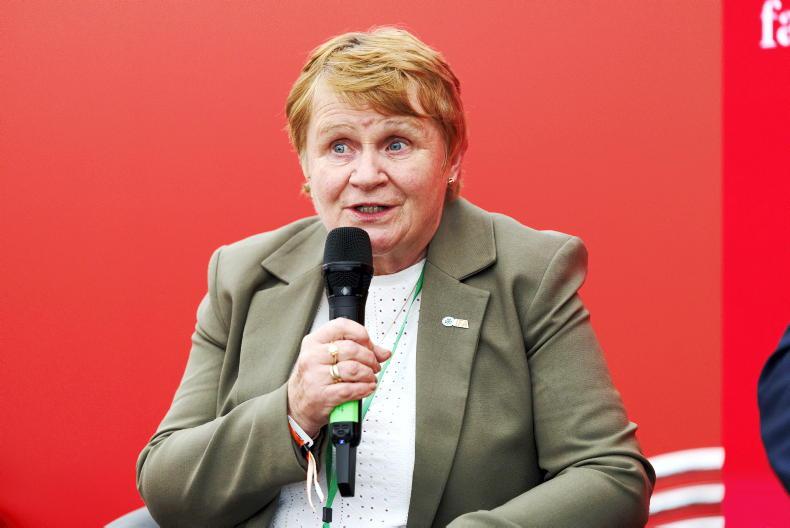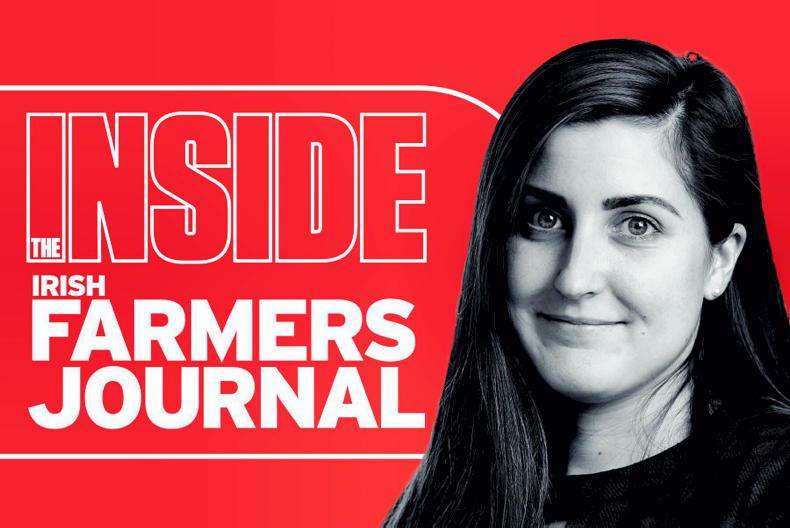British prime minister Theresa May has written to the president of the European Council Donald Tusk confirming the UK’s intention to leave the EU. Now starts the two-year negotiation period.
Whether you farm in Northern Ireland (NI) or the Republic of Ireland, the future is one of uncertainty.
Farmers in NI are facing into the uncertainty of having no direct farm payments from Brussels after 2019.
However those farmers are likely to continue to have access to Britain, one of the most lucrative markets in the world.
For farmers in the Republic, there are very real threats of having large import tariffs imposed on farm produce.
Farm organisations and meat processors have reacted with concern.
IFA
President of the IFA Joe Healy said: “IFA wants to maintain the closest possible trading relationship between the UK and EU, while preserving the value of the UK market; and a strong CAP budget following the UK’s departure, which is critical for farm incomes, farm output and economic activity in rural Ireland.”
ICMSA
ICSMA president John Comer said such was the extent of Ireland’s exposure to a hard Brexit that we could not afford to adopt a wait-and-see attitude. “If there was ever an issue and occasion when we must look to our own national interests then this is it. We have to take responsibility for our interests.”
ICSA
ICSA president Paddy Kent warned: “Irish agriculture did not cause Brexit - it cannot be the loser from it. The Government must ensure that the guidelines given to Michel Barnier make tariff-free trade between Ireland and the UK a line in the sand.”
Meat Industry Ireland
Cormac Healy of Meat Industry Ireland (MII), the lobby group for Ireland’s meat processors said: “56% of our meat exports, accounting for in excess of €2bn annually, are sold into the UK market.
“A hard Brexit will result in massive trade disruption and job losses whereas a sensible outcome aimed at maintaining trading continuity will be beneficial to both the Irish and UK agri-food sectors”.
Read more
What are the Brexit implications for farming?
Full coverage: Brexit
British prime minister Theresa May has written to the president of the European Council Donald Tusk confirming the UK’s intention to leave the EU. Now starts the two-year negotiation period.
Whether you farm in Northern Ireland (NI) or the Republic of Ireland, the future is one of uncertainty.
Farmers in NI are facing into the uncertainty of having no direct farm payments from Brussels after 2019.
However those farmers are likely to continue to have access to Britain, one of the most lucrative markets in the world.
For farmers in the Republic, there are very real threats of having large import tariffs imposed on farm produce.
Farm organisations and meat processors have reacted with concern.
IFA
President of the IFA Joe Healy said: “IFA wants to maintain the closest possible trading relationship between the UK and EU, while preserving the value of the UK market; and a strong CAP budget following the UK’s departure, which is critical for farm incomes, farm output and economic activity in rural Ireland.”
ICMSA
ICSMA president John Comer said such was the extent of Ireland’s exposure to a hard Brexit that we could not afford to adopt a wait-and-see attitude. “If there was ever an issue and occasion when we must look to our own national interests then this is it. We have to take responsibility for our interests.”
ICSA
ICSA president Paddy Kent warned: “Irish agriculture did not cause Brexit - it cannot be the loser from it. The Government must ensure that the guidelines given to Michel Barnier make tariff-free trade between Ireland and the UK a line in the sand.”
Meat Industry Ireland
Cormac Healy of Meat Industry Ireland (MII), the lobby group for Ireland’s meat processors said: “56% of our meat exports, accounting for in excess of €2bn annually, are sold into the UK market.
“A hard Brexit will result in massive trade disruption and job losses whereas a sensible outcome aimed at maintaining trading continuity will be beneficial to both the Irish and UK agri-food sectors”.
Read more
What are the Brexit implications for farming?
Full coverage: Brexit








SHARING OPTIONS